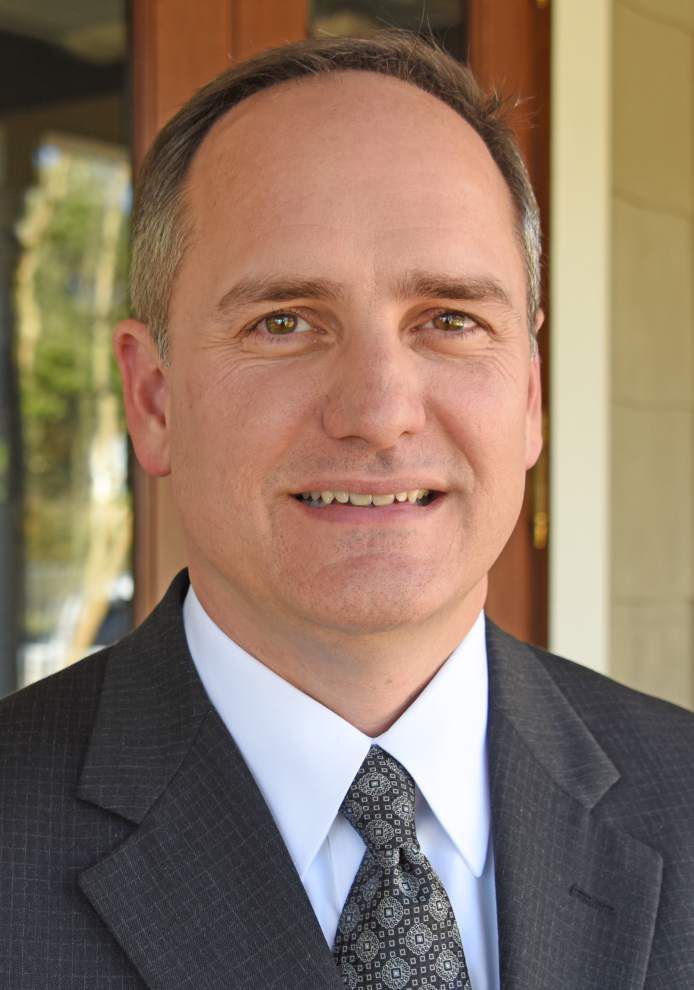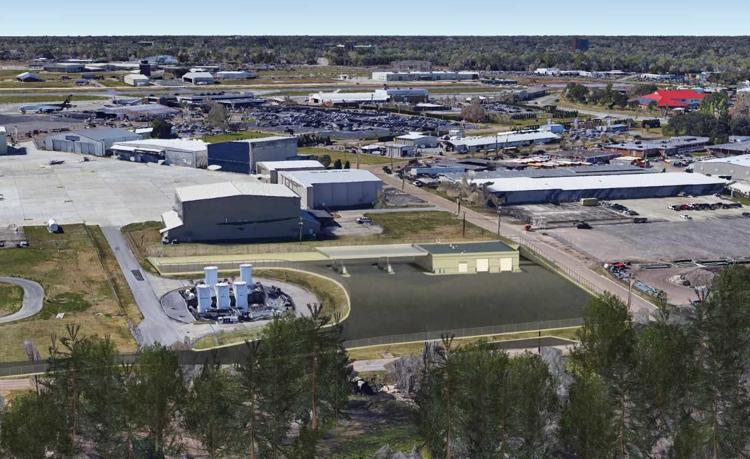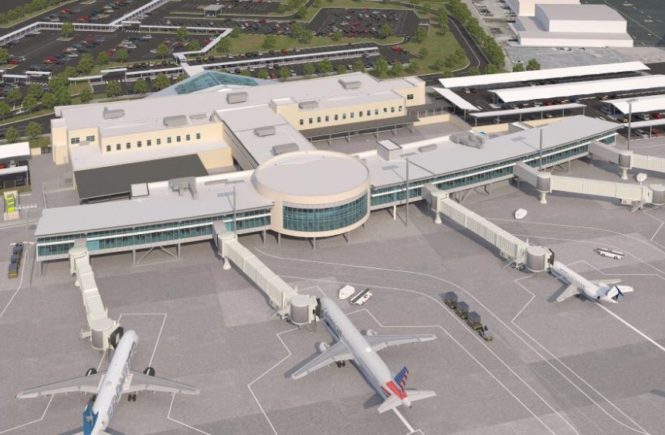Podcast: Play in new window | Download (Duration: 34:33 — 61.2MB)
Steven Picou, Executive Director of the Lafayette Regional Airport, visits with Jan Swift, Host of Discover Lafayette, to discuss the ongoing progress of construction of Lafayette’s new terminal, as well as the impact the COVID-19 virus on air travel numbers at the airport.
A native of Cut Off in Lafourche Parish, Picou graduated from Louisiana Tech University with a bachelor’s degree in professional aviation and obtained his commercial, multi-engine, instrument pilot’s license at Tech the same year. He has worked at other airports around the country in New Orleans, Albuquerque, and Amarillo. His experience includes remodeling and building new terminals.
Picou was hired in 2015 by the Lafayette Airport Commission as the body was poised to move forward with the construction of a larger terminal, an expanded parking lot, and other facility upgrades. In order to raise matching funds needed to obtain federal and state funding for the project, in December 2014 Lafayette Parish residents overwhelmingly approved a temporary one-cent tax to be imposed from April 1 through November 30, 2015. Approximately $33.5 million was raised during that time, with all funds being dedicated to the airport terminal project.
The $90 million terminal project is funded by thirteen sources which include the local tax proceeds collected in 2015 along with federal and state grants from the Federal Aviation Administration (FAA), the Louisiana State Department of Transportation (DOTD) Aviation Division, La. DOTD, and airport savings. The total cost of the project may reach $130 million when a new FAA facility, rental car area, and other upgrades are completed. Lemoine Manhattan, a joint venture of The Lemoine Company and Manhattan Construction Company, is the prime contractor for the new terminal.

Construction of the new airport terminal and upgraded facilities began in 2018 and is projected to be completed in September 2021. Picou says “the project is on time and on within its budget.” Lafayette is the ‘poster child’ for the FAA as to how communities should go about funding projects and Picou says “it goes a long way when you can bring something to the table when you’re asking for financial help in building a facility.”
Picou likens his job to that as mayor of a city. He says, “I’m not elected but I do serve as the “Mayor” of the Airport working with the Lafayette Airport Commission’s seven members, who are vested with authority similar to that of a City Council. The airport has its own law enforcement (contracted with the Lafayette Parish Sheriff’s Office) and its own aircraft fire-fighting rescue services (contracted with the Rural Metro Corporation). The Airport encompasses approximately 1,116 acres over four separate tracts of land which include the airfield, hangars, terminal building, aviation and non-aviation facilities, and safety areas, all of which are overseen by Picou and the Lafayette Airport Commission.
While the airport partners with the Transportation Security Administration (TSA) and the airlines, it does not have control of their operations. The flight partnership is three-prong: Lafayette Regional Airport is your gateway to travel and is responsible for roadways, the maintenance of all facilities and infrastructure such as the terminal and runways, keeping the grounds safe, and providing space for parking and rental car lots. The TSA is responsible for the safe and secure screening of all passengers. (*Note that a second TSA screening line was scheduled to be opened but the pandemic has delayed this addition.) And thirdly, the airlines are responsible for selling you a seat and running the entire baggage process; the airport does not have the authority to sell seats on the airlines or secure your luggage and track it down in the event it gets lost.
Airports make money through several revenue streams including from their general aviation partners (smaller aircraft as well as the larger commercial carriers (Delta, United, American, etc. ). Landing fees, passenger facility charges, concessions, parking fees and tenants located on the airfield contribute to the airport’s revenue.
Starting May 1, the airport will open a “QTA” or quick turnaround facility at 133 Fuel Drive, which will enable the car rental companies to store their vehicles on airport property, service them, quickly clean and fuel them, and return them to their lot. The airport will charge rent to the rental car companies and charge a fuel flowage fee.

An aerial rendering of the new Quick Turnaround Facility for rental car companies, which is slated to open on May 1, 2020. Photo provided by Lafayette Regional Airport.
The Lafayette Regional Airport experienced a record number of travelers in 2019, with more than 530,000 passengers flying in and out of Lafayette. The COVID-19 virus brought that to a screeching halt. Flights are taking off daily, however, with American, Delta, and United departing to Dallas-Ft. Worth, Atlanta, and Houston, respectively. While Picou couldn’t give current numbers of travelers for April at the time of this interview, he did share anecdotal evidence of a recent Sunday where 22 passengers boarded flights. On a recent weekday, he noted there were 88 passengers processed. This is in comparison to the more than 300 passengers who would have boarded early flights from 5:30 to 7 a.m; there are normally 500 to 650 passengers per day. Picou suggests that travelers check with their airline to ensure that their flight will take off as originally scheduled, just as you normally would.
Airports nationwide have experienced a sharp drop-off in travelers and Congress included relief in the amount of $10 billion to the Federal Aviation Administration in the recently passed CARES (Coronavirus Aid, Relief and Economic Security) Act. The Lafayette airport will receive $2,862,075 in relief from the FAA under CARES, which will be utilized to continue operations, make payroll, pay utilities and meet debt its obligations. (The amount of grant funding under the CARES Act directed to each airport is based upon their average number of enplanements and debt ratio.)
The airport’s budget must be balanced each year by law, and right now, their budget is in good shape, according to Picou. While other airports around the country have flexibility in dealing with tenants who may not be able to stay current with their rent, the Louisiana Constitution prohibits the donation of goods and services by public bodies; Picou and the Airport Commission are currently working with their legal team to determine what measures may be legally taken to assist any tenant who may need rent concessions.
Picou is optimistic that things will get back to normal soon and is looking forward to the opening of the new terminal. The upgrade will include an additional 90 parking spots, and the ability to expand the new facility from 5 up to 7 gates if needed. Once the new terminal is completed, the old terminal will be demolished.
Although Picou is not actively flying these days, he jokes that he does a lot of “hangar talking” and there is nothing like the smell of jet fuel!
We thank Steven Picou for his service and leadership he brings to our community! We look forward to enjoying our new airport facility for many years to come. Visit https://lftairport.com/ for more information.





